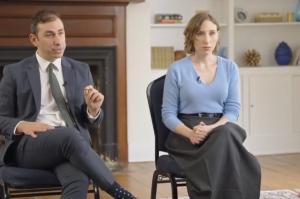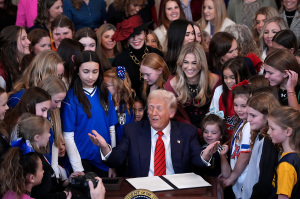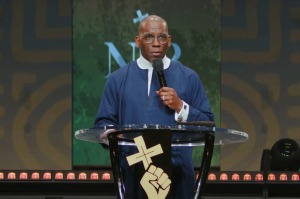2nd Circuit weighs female athletes' case against Connecticut's trans athletes policy

A federal appeals court heard oral arguments on whether four female athletes were harmed by being forced to compete with biological males who identify as female in high school and if they qualify for damages.
The 2nd U.S. Circuit Court of Appeals held an en-banc hearing in the case of Selina Soule et al. v. Connecticut Interscholastic Athletic Conference on Tuesday afternoon.
At issue in the case are four former female high school track and field athletes — Selina Soule, Chelsea Mitchell, Alanna Smith and Ashley Nicoletti — who say they were wrongfully deprived of an opportunity to run in the New England regionals in 2019 because they had to compete against trans-identified athletes.
The entire circuit will have to decide whether the complaint from the four athletes is moot because they graduated from high school since the lawsuit was filed and if their complaint is redressable.
John Bursch of the Alliance Defending Freedom argued on behalf of the four athletes and urged the court to reverse earlier rulings against the plaintiffs and remand the case back to the lower court for a "merits determination."
Bursch said in his opening statement that the harm the athletes experienced was redressable by the CIAC by "correcting the athletic records" and giving "nominal damages" to the plaintiffs.
Bursch argued that the plaintiffs suffered harm from the CIAC policy allowing biologically male trans-identified athletes to compete in female competitions "the moment that they stood at the race line and had biological male competitors and then lost to those competitors in their races."
"Now the effects of that can flow into all kinds of different things," Bursch continued. "If you think about this in terms of consequential damages, one consequence is that they didn't advance to additional races. Another consequence is that they didn't get the gold medal."
"Another consequence is that when they applied to colleges, their records weren't as shiny as they should have been. Another consequence is when they apply for jobs, their employment resume doesn't show their accomplishments."
Peter Murphy of Shipman's School Law Practice Group defended the CIAC, arguing that "the plaintiffs have not alleged any concrete or imminent harm from the mere existence of these records from years-old races."
"They don't claim, for example, that anything specifically turns on these results," Murphy said, adding, "we don't know how these races would have turned out" had the trans-identified athletes not participated.
Murphy denied that the CIAC policy, first enacted in 2013, is discriminatory, citing federal guidance from the time that encouraged such policies.
Joshua Block of the American Civil Liberties Union represented the intervenors in the case, two trans-identified athletes who participated in female sports under the CIAC policy.
Block argued that the plaintiffs' argument "fails on the merits," pointing to how the trans-identified athletes lost a couple of their races.
In rebuttal comments, Bursch replied that the occasional victory by the plaintiffs in their high school races "doesn't mean that our clients weren't deprived of other awards in races that they lost."
The female athletes filed their lawsuit against CIAC, also known as the Connecticut Association of Schools, in February 2020, with U.S. District Judge Robert Chatigny of Connecticut rejecting the runners' complaint in April 2021.
"I conclude that the plaintiffs' challenge to the CIAC policy is not justiciable at this time and their claims for monetary relief are barred and dismiss the action on this basis without addressing the other grounds raised in the joint motion," ruled Chatigny, a Clinton-appointed judge.
Last December, a three-judge panel of the 2nd Circuit unanimously ruled against the female runners, with Obama-appointed Circuit Judge Denny Chin authoring the panel opinion.
Chin stated that "we are unpersuaded" that the athletes "have established the injury in fact and redressability for standing," arguing it was moot since the four athletes have graduated and are no longer directly impacted by the policy.
The panel also concluded that "Courts of Appeals considering whether Title IX prohibits schools from treating transgender students consistent with their gender identity have held that the statute does not."
"Although these cases from our sister circuits do not address the exact issue of participation of transgender athletes on gender-specific sports teams, such authority nonetheless establishes that discrimination based on transgender status is generally prohibited under federal law," wrote Chin.
In February, a majority of the judges on the 2nd Circuit voted to hear an appeal in the case before the full court.





























